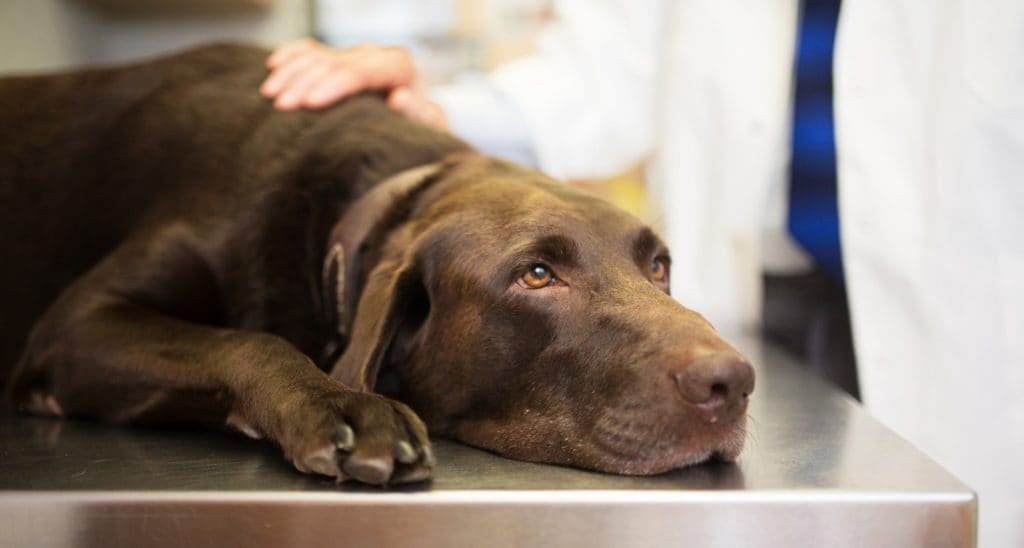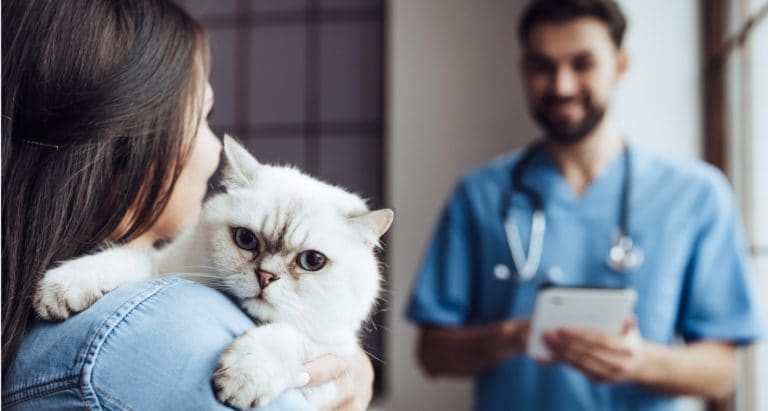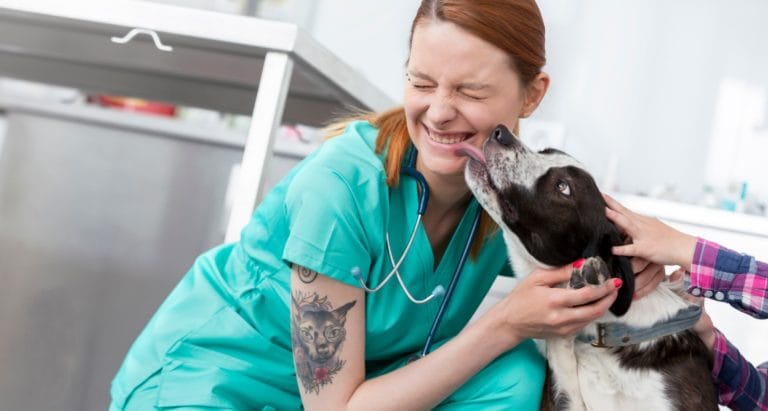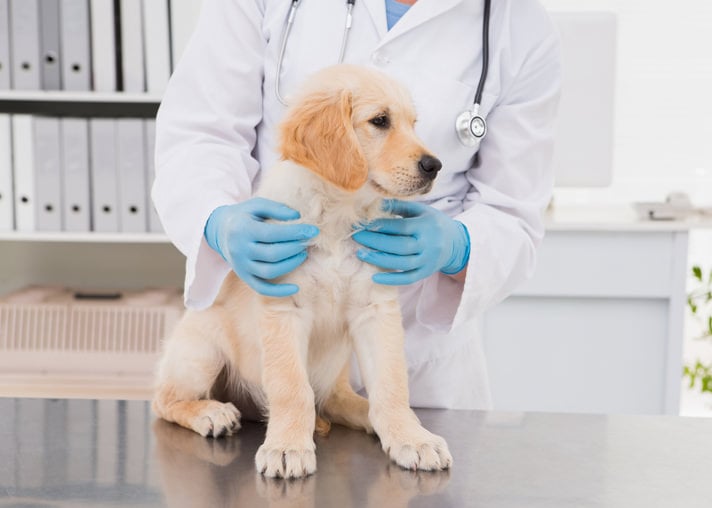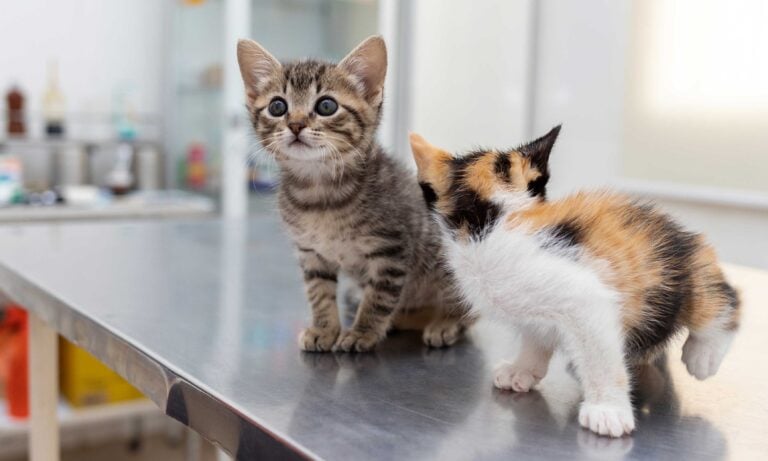If you are like most people, you only make a vet appointment once or twice a year, and those vet visits to the animal clinic can be a stressful blur if you are not prepared. The biggest challenge I have is giving accurate nutritional information or counseling because pet owners have a hard time reminding the brand of food they feed their pets. When I ask, they usually say something, “Oh! I knew you were going to ask that! It’s in a blue bag…” As you can imagine, that can make it difficult to give good recommendations.
I have found that if pet parents do a couple of easy things before their visit to the veterinarian, these vet appointments can be less stressful and more productive. Fortune favors the prepared—follow these tips to get the most out of your vet visit.
Be Prepared to Answer Important Questions
I’m a busy mom of three, and I understand how stressful it can be to get everything together before you take your pet to the vet appointment. If you remember some key information, however, it will make your pet vet visit go much more smoothly. Here are some recommendations:
* Make sure the primary caregiver or decision maker about the pet is at the vet appointment, otherwise your vet will not be able to get or give important information about the pet. Treat the visit as if you are taking your child to an annual visit to the pediatrician.
* Make sure to have all pertinent information about vaccines and parasite control, such as flea and tick control or heartworm prevention, with you if you are visiting a new veterinarian. They will need this information to make appropriate recommendations to you. Also bring all of your pet’s medications with you. If you are taking your pet in to a veterinarian that you regularly see, they will have this information on file, so you don’t need to bring it.
* Take a picture of what pet food you are feeding your pet so that when the veterinary staff asks, you can show them. Also know how much you are feeding, and how often. This will help the pet doctor make nutritional recommendations.
* The veterinary clinic staff will have questions about your pet’s habits, travel history and medical history. Some of the common questions are about bowel and urinary habits, if there is any coughing or sneezing, and if the pet has been vomiting. The answers to these questions help the veterinarian clinic make the best treatment recommendations for your pet.
Arrive Early
When you go to your own doctor, if there are any forms to fill out, they usually have you arrive 15 minutes early so that you can be seen on time. It is a good idea to do the same thing when you take your pet to the veterinarian, as form filling can be time consuming and push back your appointment.
Prepare Your Questions Ahead of Time
In my experience, there is so much happening during vet appointments that people often forget important questions they want to ask. If you only go to the veterinary clinic once or twice a year, this may be the only time you get to ask these questions. If you are having a pet emergency, chances of remembering what you want to ask are reduced even further! I recommend thinking about what questions you have for your vet before you go, and write them down. Examples of question topics could include:
- Lumps or bumps you want checked.
- Changes in urination or bowel habits.
- Changes in mobility or energy.
- Changes in appetite.
- Changes in behavior or attitude.
- Anything weird—write it down.
I also recommend being proactive about your pet’s health. Ask what you can do to improve the wellness of your pet, not only for today but on how to form habits that will promote wellness when your pet is a senior citizen. Proactive pet parents are less likely to have pet emergencies. We now know that wellness is more than just vaccines—you may be surprised as to all the options available to you to help your pet live his or her best life yet!
Show Me the Money
Many pet parents are caught unawares by the financial responsibility of veterinary care. In my experience, 99% of pet owners want to do everything they can so that their pet can be healthy, happy and pain-free, but a much lower percentage of pet parents are aware that sometimes there can be a large financial investment involved in paying for the expense to heal their pets. You can lower your chances of a surprise bill at the vet hospital in a couple of ways.
First, make sure to stay up on your annual wellness visits, and follow all recommendations from your veterinary clinic on infectious disease control, including parasite control and vaccines. This is where the proactive piece I talked about comes in—the more you do to promote wellness and catch disease early, the less your pet will suffer, and the lower the sticker shock will be.
Second, I suggest having a pet emergency credit card only for unexpected veterinary bills, or apply for a line of credit through CareCredit or Wells Fargo, or invest in pet insurance to mitigate veterinary bills. If you have these financial pieces in place, then you won’t need to worry about money if your pet gets sick or injured—you can just focus on helping your furry family member.
Third, call to get an estimate before you schedule the appointment for everything your pet needs. Even if you can’t afford everything at one vet appointment, you can budget for the care that your pet needs and spread the costs over a couple of months. For example, at your dog’s annual wellness visit, maybe you can only afford the exam and vaccines, but you can schedule to come back in a month to get the heartworm test and parasite prevention. Most veterinarians are happy to help set you up on a preventive care schedule that not only protects your pet, but also doesn’t break your bank.
Share:
